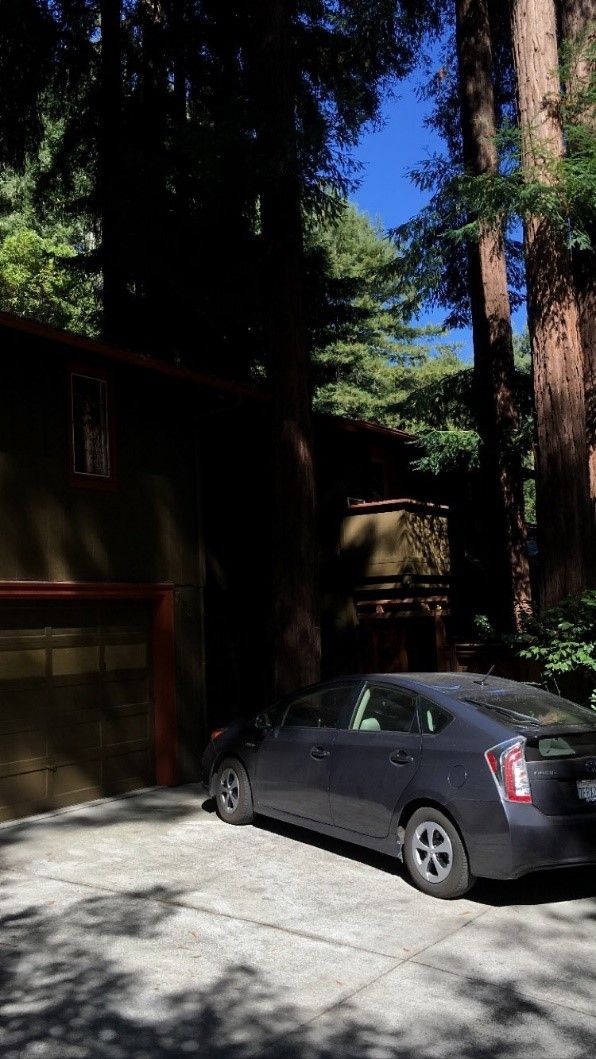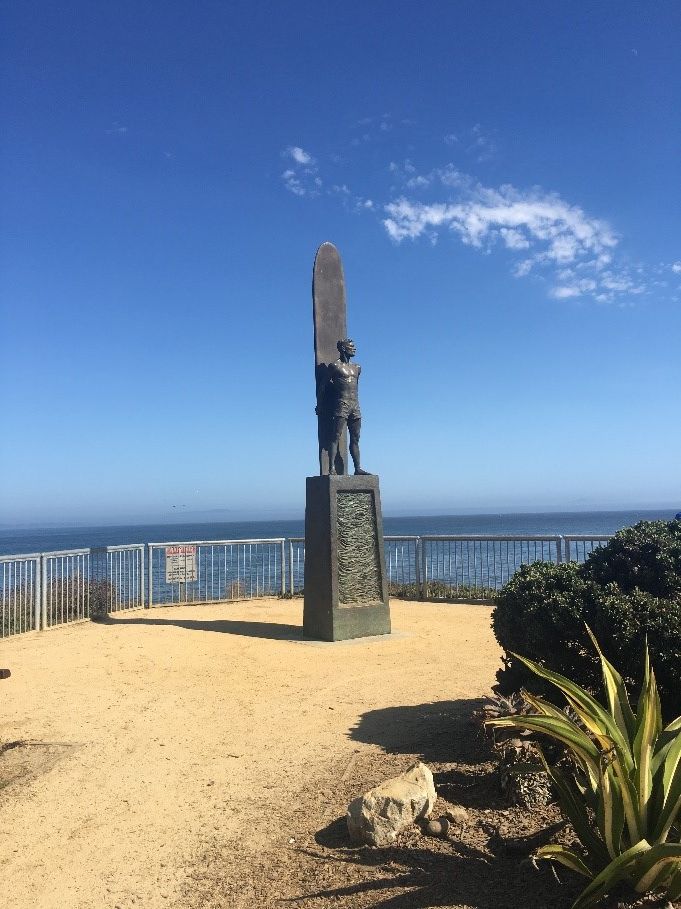By Callum Ruddock, Third Year Politics and International Relations Student
The Croft Magazine // Callum discovers the two faces of Santa Cruz, California
Epigram readers will be delighted to know that this story isn’t a who’s who of my travels in the land of the hamburger; instead, more of an honest retelling of a culture that I came to know.
I was road tripping solo down the west coast. By late August, having waved goodbye to friends in Oregon, it was time to give California a go. On the morning of the 28th, a plane glided into San Francisco airport. Two trains, one bus, and a quick stroll up into the hills, I would discover my temporary home. Shrouded by the redwood forests of central California was Felton, Santa Cruz County: a small mountain town built in 1874 by workers of the San Lorenzo Valley Logging Flume up in Boulder Creek. There for two weeks, I stayed with Barbara and Ken; old family friends, who abandoned loud London to make this woodland retreat their own.
Barbara had built the house sometime in the 1970s; the removal of the previous dwelling, a fairly arduous effort, requiring the assistance of the local biker gang turned demolition experts. In the shadow of looming trees, what replaced it was a spacious and comfortable family home, painted green to match its surroundings. My ever-magnanimous hosts, always improving and toiling, complimented their house and gardens with the addition of a small vineyard in late 2017. Lovely people - terrible wine.

Barbara was generously lending me a car for the rest of my trip southwards. On a typically chilly September night, I began surfing my muddy green Prius down the tight bends and long curves into Santa Cruz. The car was so heavy and brutish through every corner that I distinctly remember gleaming with joy as I wrestled the poor thing down those steep Californian hills. It was there in the dimly lit downtown streets that I would encounter tight-nit small town culture at its most insular. Or at least so I thought.
Santa Cruz came somewhat as a shock. A town trapped in time. Spent youth in abundance. Free spirits, surf boards and protest. Jefferson Airplane still played softly in the empty daytime bars. A continuous haven for the resting hippy. I’d come prepared for a town trapped in the miseries and joys of the 20th Century, and boy oh boy did it completely fail me.
'A town trapped in time. Spent youth in abundance. Free spirits, surf boards and protest.'
These days, lifetime experiences are so quickly commodified. Visit a peaceful bay, do some yoga and discover yourself, we are told as the adverts chime. I’d assured myself I didn’t want that. Instead I cried out for the opportunity to prove myself. Trying to fit myself onto the social ladder of Santa Cruz served as an ample challenge. Somewhat confident, why did I then find myself lonely and deeply uninspired?
Here we should recognise some of the difficulties of solo travelling. Unless you’re willing to be alone for long periods of time, you’re expected to make friends. In Santa Cruz, the surf dominates the social scene. The flow of both young and old onto the thin strip of coastline each day is as regular as the ebbing of the tides. Pity that I didn’t have a clue about surfing.

I worried about my ability to read the social landscape, plagued by fears that my actions might be misread or misconstrued. Life on the West Coast seemed to run at a different pace. I found Santa Cruz to be both diverse and segregated in more ways than one. I had never seen so many drifters and beatniks outside of a major metropolitan capital. Neo-hippies, ready to protest at a moment’s notice, avoiding the last remnants of the plaid shirt hipster movement. It was ultimately two experiences then which led to my understanding of the ever-shifting Santa Cruz culture. Unsurprisingly, one involved hippies, the other surfers. The two faces of the town personifying Californian chic.
The city of Santa Cruz has been guarding its pennies in recent years. The closure of more public toilets is just one symptom of a growing austerity case all across the Californian state. Wandering out of 7-11 on my own I spot a group of activists, banners raised high. I start a conversation, and ultimately end up giving a twenty-minute radio interview on ‘British perspectives of Californian socialism’. A topic I am not well-versed in, this was a lesson in adaptability. Religious and social ideals run raw. People feel their identity is linked to where they live and that their right to self-determination should take priority over a more diplomatic approach. Beyond the bland American blocks, I discovered real character. To confidently express yourself within a key subculture group is to master the Santa Cruz way. To defend the minutia, to defend a single toilet closure; that is to protect your identity.
'Surfers leap off to catch the 'awesome swell' and I float around with my camera in hand. I'm looking for a story but instead I find friends.'
At the first hint of sun, the Californians come. On the cliff edge I see students drinking beers. Surfers leap off to catch the ‘awesome swell’ and I float around with my camera in hand. I’m looking for a story but instead I find friends. As dusk fell, the glow of the city below began to throb, and the cool evening air became the dominant force dictating my mood. Sat up on the roof of a palatial student house my new friends quiz me about my life at home and allow me to flirt politely with anyone who will listen. Sake bombs and American Spirits soften tensions and break down cultural barriers. Student living in America differs somewhat, but the age-old habit of getting drunk inside a house is fairly universal. All my insecurity and worry lifts. For an unskilled writer, the work was now writing itself.
I want to remain here for weeks on end. I want to drive my car fast in the mountains. I want to complain to the council about the removal of a street sign. I want to smoke throaty American cigarettes in the sea breeze. Alas, as soon as we get to know somewhere, fate has us move on. I’d come to know Santa Cruz, a little bit of me left behind. Looking back, I no longer just see hippies. From my perch upon the hill, I see a home.
Featured image credit: Unsplash / Matt Jones
Find The Croft Magazine inside every copy of Epigram Newspaper









